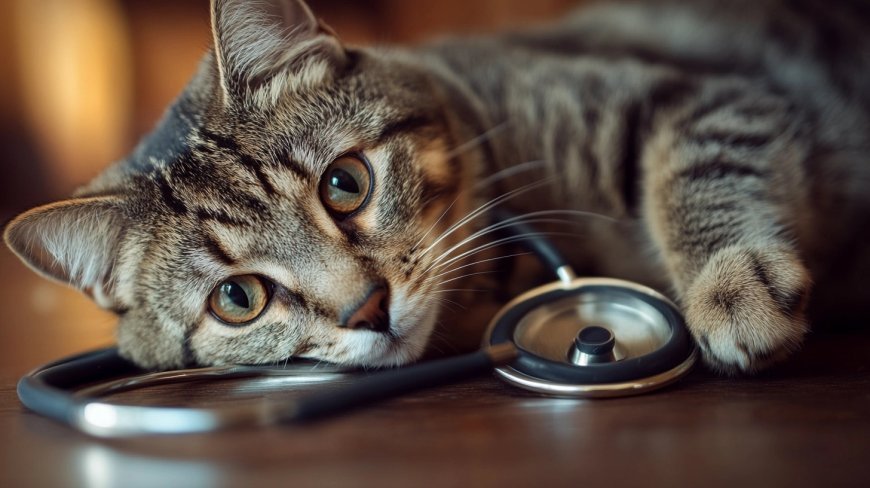The Importance of Regular Vet Visits: What to Expect and Questions to Ask

Regular vet visits are essential to keeping your pet healthy and ensuring they live a long, happy life. Just as people need annual check-ups to monitor their health, pets require routine veterinary care to detect potential health issues early and to stay on top of preventative treatments like vaccinations, dental care, and parasite control. Regular veterinary check-ups can be life-saving, especially since pets often hide signs of illness, making early detection crucial.
In this guide, we will explore why regular veterinary visits are important, what to expect during a typical vet check-up, and key questions you should ask your vet to better understand your pet’s health needs.
1. Why Regular Vet Visits Are Crucial for Your Pet’s Health
Veterinary visits are not just for when your pet is visibly sick or injured—they play a vital role in preventative care. Routine check-ups help detect issues early, manage chronic conditions, and keep your pet up to date on essential vaccines and treatments.
A. Early Detection of Health Issues
-
Preventing Serious Illness: Pets can’t tell us when they’re not feeling well, and they are often good at hiding signs of discomfort or illness. Regular check-ups allow veterinarians to catch potential problems, such as infections, tumors, or dental disease, before they become more serious and difficult to treat.
-
Monitoring Chronic Conditions: If your pet has a chronic condition like diabetes, kidney disease, or arthritis, regular visits allow your vet to monitor their progress and adjust treatments as needed to manage the condition effectively.
B. Vaccination and Parasite Control
-
Vaccinations: Regular vet visits ensure that your pet stays current on vaccines, protecting them from preventable diseases like rabies, parvovirus, and feline leukemia. Puppies and kittens, in particular, require a series of vaccinations in their first year of life to establish immunity.
-
Parasite Prevention: Routine check-ups are the perfect time to ensure your pet is protected against fleas, ticks, heartworm, and other parasites. Your vet can recommend the best preventative measures based on your pet’s lifestyle and environment.

C. Dental Health
-
Oral Examinations: Dental health is often overlooked but is a critical component of overall health. Your vet will check your pet’s teeth and gums for signs of periodontal disease, tooth decay, or oral infections. Regular dental cleanings may be recommended to prevent more serious health issues caused by poor oral hygiene.
-
Preventing Oral Infections: Dental disease can lead to systemic infections, affecting the heart, kidneys, and liver. Routine vet visits help catch oral health issues early, preventing them from escalating into more significant health risks.
D. Weight Management and Nutrition
-
Monitoring Weight: Obesity in pets is a common but preventable problem. During regular check-ups, your vet will assess your pet’s weight and provide recommendations for diet and exercise if they’re overweight or underweight.
-
Nutritional Advice: Your vet can offer guidance on proper nutrition based on your pet’s age, breed, and health condition. They can recommend a balanced diet that meets your pet’s specific needs, including adjustments for senior pets or those with allergies or chronic conditions.
2. What to Expect During a Routine Vet Check-Up
Understanding what happens during a routine vet visit can help you feel more prepared and ensure that your pet gets the most out of their appointment. Here's what you can typically expect:
A. Physical Examination
-
Comprehensive Body Check: The vet will conduct a nose-to-tail examination, checking your pet’s overall body condition. They will palpate the abdomen to check for any abnormalities, examine the coat for signs of parasites or skin conditions, and inspect the paws, nails, and joints.
-
Weight and Body Condition Assessment: The vet will weigh your pet and assess their body condition, checking for any signs of obesity, weight loss, or muscle atrophy. They may recommend dietary changes if necessary.
-
Heart and Lungs: Using a stethoscope, the vet will listen to your pet’s heart and lungs to detect any irregularities, such as a heart murmur or breathing issues, which may indicate underlying health problems like heart disease or respiratory infections.
B. Vaccinations and Boosters
-
Administering Core Vaccines: Depending on your pet’s vaccination schedule, the vet may administer core vaccines that protect against common and dangerous diseases. These include rabies, distemper, parvovirus, and feline leukemia, among others.
-
Review of Non-Core Vaccines: Non-core vaccines, like those for Lyme disease or Bordetella (kennel cough), may be recommended based on your pet’s exposure risk. Your vet will discuss whether these are necessary based on your pet’s lifestyle.
C. Dental Check-Up
-
Oral Exam: Your vet will examine your pet’s teeth and gums for any signs of gingivitis, tartar buildup, or tooth decay. They may recommend a professional cleaning if necessary.
-
Tips for Home Dental Care: The vet can provide advice on how to care for your pet’s teeth at home, including using dental chews, brushing, or specialized diets that promote dental health.
D. Parasite Prevention
-
Flea, Tick, and Heartworm Prevention: During the check-up, the vet will recommend or administer preventative medications for fleas, ticks, and heartworms. They may also perform a blood test to check for heartworm if your pet is at risk.
-
Fecal Exam: The vet may request a stool sample to check for internal parasites like worms or protozoa that could affect your pet’s digestive system.
E. Blood Tests and Diagnostics
-
Routine Bloodwork: For older pets or those with health concerns, your vet may recommend a complete blood count (CBC) or biochemistry panel to check organ function and detect any hidden conditions, such as kidney disease, liver issues, or diabetes.
-
Urine Tests: A urinalysis may also be conducted to check for signs of infection, kidney problems, or diabetes. Regular urine tests can help identify issues that may not yet be showing external symptoms.
3. Questions to Ask During a Vet Visit
As a responsible pet owner, it’s essential to stay informed about your pet’s health. Don’t hesitate to ask your veterinarian questions during the visit to ensure you understand your pet’s condition and what you can do to maintain their health.

A. Questions About Preventative Care
-
Which Vaccines Does My Pet Need?: Ask your vet about core and non-core vaccines and whether your pet’s vaccination schedule is up to date. Understanding which vaccines are necessary based on your pet’s age and environment is key to disease prevention.
-
How Can I Protect My Pet from Parasites?: Inquire about the best flea, tick, and heartworm prevention for your pet, and discuss the frequency of treatment based on where you live and your pet’s activities.
B. Questions About Diet and Nutrition
-
Is My Pet at a Healthy Weight?: Ask your vet if your pet’s current weight is healthy for their breed, size, and age. If your pet is overweight or underweight, seek advice on how to adjust their diet and exercise routine.
-
What Type of Food Should I Be Feeding My Pet?: Based on your pet’s health, age, and any underlying conditions, ask for recommendations on the best food for your dog or cat. Discuss any specific nutritional needs, such as senior diets or grain-free options.
C. Questions About Senior Pet Care
-
What Health Issues Should I Watch For as My Pet Ages?: If you have a senior pet, ask your vet about common age-related health problems, such as arthritis, cognitive decline, or heart disease. Early detection and preventative care can significantly improve the quality of life for aging pets.
-
How Often Should My Senior Pet Have Check-Ups?: Senior pets often require more frequent vet visits—typically every six months. Ask your vet how often your aging pet should be examined and whether additional diagnostic tests are necessary as they grow older.
D. Questions About Behavioral Changes
-
My Pet Is Acting Differently—Should I Be Concerned?: If you’ve noticed any changes in your pet’s behavior, such as aggression, anxiety, or lethargy, bring it up during the visit. Behavior changes can sometimes be linked to underlying health issues.
-
How Can I Address Problem Behaviors?: Ask your vet for advice if your pet has developed destructive behaviors like excessive chewing, scratching, or separation anxiety. They may recommend training tips or even refer you to a pet behaviorist if needed.
E. Questions About Dental Care
-
How Can I Improve My Pet’s Oral Health?: Ask for tips on brushing your pet’s teeth at home and inquire about dental products like chews or special diets that can help prevent tartar buildup.
-
When Should My Pet Have a Dental Cleaning?: If your pet has tartar buildup or gum disease, ask your vet if a professional dental cleaning is necessary and how often it should be done.
4. How to Prepare for a Vet Visit
Being prepared for your pet’s veterinary visit can help ensure that you get the most out of the appointment. Here are some steps to take before your visit:
A. Gather Your Pet’s Medical Records
-
Bring Medical History: If you’re seeing a new vet, make sure to bring along your pet’s medical records, including their vaccination history, past illnesses, and any medications they are currently taking. This gives the vet a complete picture of your pet’s health.
-
Record of Symptoms: If your pet has been showing signs of illness, keep a log of symptoms, including when they began, how frequently they occur, and any changes in your pet’s behavior or appetite.
B. Make a List of Questions
-
Prepare Questions in Advance: Write down any questions or concerns you have about your pet’s health before the visit. This ensures you don’t forget important details during the appointment.
-
Review Your Pet’s Routine: Be prepared to discuss your pet’s daily routine, diet, activity levels, and any recent changes in behavior. This information helps the vet provide more tailored advice.

C. Bring a Stool Sample
- Stool Sample for Parasite Testing: Many vets request a stool sample for routine testing during a check-up to screen for intestinal parasites. Make sure to bring a fresh sample from your pet to the appointment if required.
5. Conclusion: Regular Vet Visits are Essential for Preventative Care
Regular vet visits are the cornerstone of keeping your pet healthy and preventing serious illness. These check-ups allow your veterinarian to monitor your pet’s health, catch problems early, and ensure they receive the necessary vaccinations, parasite prevention, and dental care. By maintaining a proactive approach to your pet’s health, you can help ensure they live a long, happy, and healthy life.
Remember to ask questions during your visits, stay on top of preventative care, and take any signs of illness seriously. Your vet is your best resource for advice and guidance, so building a strong relationship with them will benefit your pet’s overall well-being. With regular check-ups, a balanced diet, and the right care, your furry friend can enjoy many healthy years by your side.
6. Frequency of Vet Visits: How Often Should Your Pet See the Veterinarian?
One of the most common questions pet owners have is how often they should take their pet to the vet. The answer varies depending on your pet’s age, breed, and overall health. Regular vet visits are essential throughout your pet’s life, but the frequency may change as they grow from puppies or kittens to seniors.
A. Puppies and Kittens: Frequent Visits in the First Year
-
Initial Vaccination Series: During the first year of life, puppies and kittens require multiple vet visits, starting at 6-8 weeks old, to receive essential vaccines and boosters. Your vet will typically schedule vaccinations every 3-4 weeks until your pet is around 16 weeks old. These visits help establish your pet’s immunity against dangerous diseases like distemper, parvovirus, and feline leukemia.
-
Spaying/Neutering: In addition to vaccinations, the first year of life is also the time to discuss spaying or neutering your pet, usually between 4-6 months of age. This helps prevent unwanted pregnancies and reduces the risk of certain cancers and behavioral issues.
-
Growth Monitoring: During these early visits, the vet will also monitor your pet’s growth and development, ensuring they’re hitting the right milestones in weight, behavior, and health.
B. Adult Pets: Yearly Wellness Exams
-
Annual Check-Ups: Once your pet reaches adulthood, a yearly wellness exam is usually sufficient to monitor their health and provide preventative care. These visits focus on maintaining your pet’s overall health and catching any early signs of illness. Vaccines, parasite control, dental check-ups, and bloodwork may be part of these visits.
-
Weight and Nutrition Review: Adult pets often require a reevaluation of their diet to ensure they’re receiving the right nutrients for their activity level. Obesity is a common issue in adult pets, and an annual check-up is a good opportunity to discuss weight management and feeding recommendations.
-
Dental Care: Dental disease is one of the most common health problems in adult pets, so your vet will likely recommend regular dental cleanings if needed. It’s also a great time to get advice on maintaining your pet’s oral health at home with brushing or dental chews.

C. Senior Pets: More Frequent Vet Visits
-
Bi-Annual Check-Ups for Seniors: As pets age, their health needs change, and they become more susceptible to chronic conditions such as arthritis, heart disease, and kidney issues. Senior pets (generally over 7 years old) should visit the vet every 6 months for a more thorough exam and regular monitoring.
-
Blood Tests and Diagnostics: Regular bloodwork, urinalysis, and other diagnostic tests are especially important for senior pets, as these tests can detect hidden health issues before they become serious. Early detection of diseases like diabetes, kidney disease, or cancer can lead to more effective treatment and improve your pet’s quality of life.
-
Joint Health and Mobility: Many senior pets experience joint pain or stiffness. During senior check-ups, your vet will assess your pet’s mobility and may suggest treatments or supplements like glucosamine, chondroitin, or anti-inflammatory medications to keep your pet comfortable.
-
Cognitive Health: Cognitive decline, or pet dementia, can affect senior pets. If you notice changes in your pet’s behavior, such as confusion or restlessness, talk to your vet about managing symptoms of cognitive dysfunction.
7. Specialized Veterinary Care: When to See a Specialist
Just like human medicine, veterinary medicine has specialists who focus on specific areas of care. In some cases, your regular veterinarian may refer you to a specialist if your pet has a condition that requires advanced diagnostics or treatment. Here’s when you might need to seek specialized veterinary care:
A. Veterinary Dermatologist
-
Chronic Skin Conditions: If your pet suffers from persistent skin problems, such as allergies, excessive itching, or recurring infections, a veterinary dermatologist can provide specialized care and advanced treatments.
-
Allergy Testing: Dermatologists can conduct in-depth allergy testing to determine the cause of your pet’s skin issues and recommend appropriate treatments, such as hypoallergenic diets or medications.
B. Veterinary Cardiologist
-
Heart Disease: If your pet is diagnosed with a heart murmur, arrhythmia, or other heart-related issues, a veterinary cardiologist may be needed to perform echocardiograms, ultrasounds, or specialized treatments.
-
Heart Medications: Cardiologists can prescribe medications to manage congestive heart failure or other cardiovascular conditions, which are more common in older pets or certain breeds prone to heart problems.
C. Veterinary Oncologist
- Cancer Treatment: If your pet is diagnosed with cancer, a veterinary oncologist will develop a treatment plan, which may include surgery, chemotherapy, radiation, or immunotherapy. Oncologists specialize in treating pets with cancer and can provide the best options for extending your pet’s life.

D. Veterinary Ophthalmologist
- Eye Problems: For pets with chronic eye issues like cataracts, glaucoma, or dry eye, an ophthalmologist can offer advanced care, including eye surgeries and treatments to preserve your pet’s vision.
E. Veterinary Nutritionist
-
Nutritional Issues: If your pet has food allergies, digestive disorders, or other conditions that require specialized diets, a veterinary nutritionist can develop a balanced diet tailored to your pet’s unique needs.
-
Weight Management: Pets struggling with obesity or malnutrition can benefit from the expertise of a veterinary nutritionist, who can help design a feeding plan that promotes optimal health.
8. Tips for a Stress-Free Vet Visit
Many pets experience anxiety about going to the vet, but there are steps you can take to make the experience less stressful for both you and your pet. Reducing stress during a vet visit can lead to a smoother examination and ensure that your pet receives the care they need without unnecessary fear or discomfort.
A. Prepare Your Pet for the Visit
-
Familiarize Your Pet with the Carrier: For cats and small dogs, the vet visit often begins with placing them in a carrier. Make the carrier a positive space by keeping it out at home and encouraging your pet to explore it with treats or toys inside. This helps reduce the stress of being placed in the carrier on the day of the vet visit.
-
Get Your Pet Used to Handling: Regularly handling your pet’s paws, ears, and mouth at home can help them feel more comfortable during vet exams, where they will need to be touched in these areas. This is especially helpful for pets that dislike being handled.
B. Manage Anxiety at the Vet’s Office
-
Bring Comfort Items: Bring along your pet’s favorite toy, blanket, or treats to help them feel more comfortable in the vet’s waiting room. Familiar smells can help reduce anxiety.
-
Use Calming Aids: If your pet gets particularly anxious about vet visits, talk to your vet beforehand about using calming products, such as pheromone sprays, calming treats, or natural supplements to help your pet stay calm.
-
Stay Calm Yourself: Pets can pick up on their owner’s anxiety, so try to remain calm and speak to your pet in a soothing tone. Your reassurance can help them feel more secure during the visit.
C. Reward Your Pet After the Visit
-
Positive Reinforcement: After the vet visit, reward your pet with praise, treats, or playtime to create positive associations with the experience. This helps reduce anxiety for future visits.
-
Practice Car Rides: If your pet dislikes car rides, try taking them on short, non-vet-related trips to fun places like a park or pet-friendly store. This helps desensitize them to car travel and reduces anxiety when going to the vet.
9. The Importance of Building a Relationship with Your Vet
A strong relationship with your veterinarian is essential to providing your pet with the best care possible. Over time, your vet will become familiar with your pet’s health history, behavior, and unique needs, allowing for more personalized and effective care.
A. Trust and Communication
-
Open Communication: Build a rapport with your vet by communicating openly about your pet’s health, any concerns you have, and your pet’s lifestyle. This helps your vet provide tailored advice and treatments that best suit your pet’s individual needs.
-
Asking Questions: Don’t be afraid to ask questions, even if they seem minor. Whether it’s about vaccinations, diet, or behavior, your vet is there to help you make informed decisions for your pet’s health.
B. Continuity of Care
-
Consistency Matters: Whenever possible, see the same vet for your pet’s check-ups and treatments. A vet who knows your pet’s history can quickly spot changes in their health, making it easier to catch problems early.
-
Follow-Up Visits: If your pet is being treated for an illness or chronic condition, follow-up visits are crucial for monitoring progress. Keeping your vet in the loop helps ensure that your pet’s treatment is effective and allows for adjustments if needed.

10. Conclusion: Regular Vet Visits are the Foundation of Your Pet’s Health
Regular veterinary visits are the cornerstone of a long, healthy life for your pet. By staying proactive with preventative care, you can catch health issues early, maintain your pet’s overall well-being, and keep them protected from preventable diseases. Whether your pet is a puppy, kitten, adult, or senior, routine check-ups allow for early intervention and ongoing health monitoring.
Make the most of each vet visit by asking questions, discussing preventative care, and addressing any concerns about your pet’s behavior, diet, or overall health. Your vet is your partner in caring for your pet, and by working together, you can ensure that your furry friend lives a happy, healthy, and comfortable life for many years to come.

 Martin Joseph
Martin Joseph 





